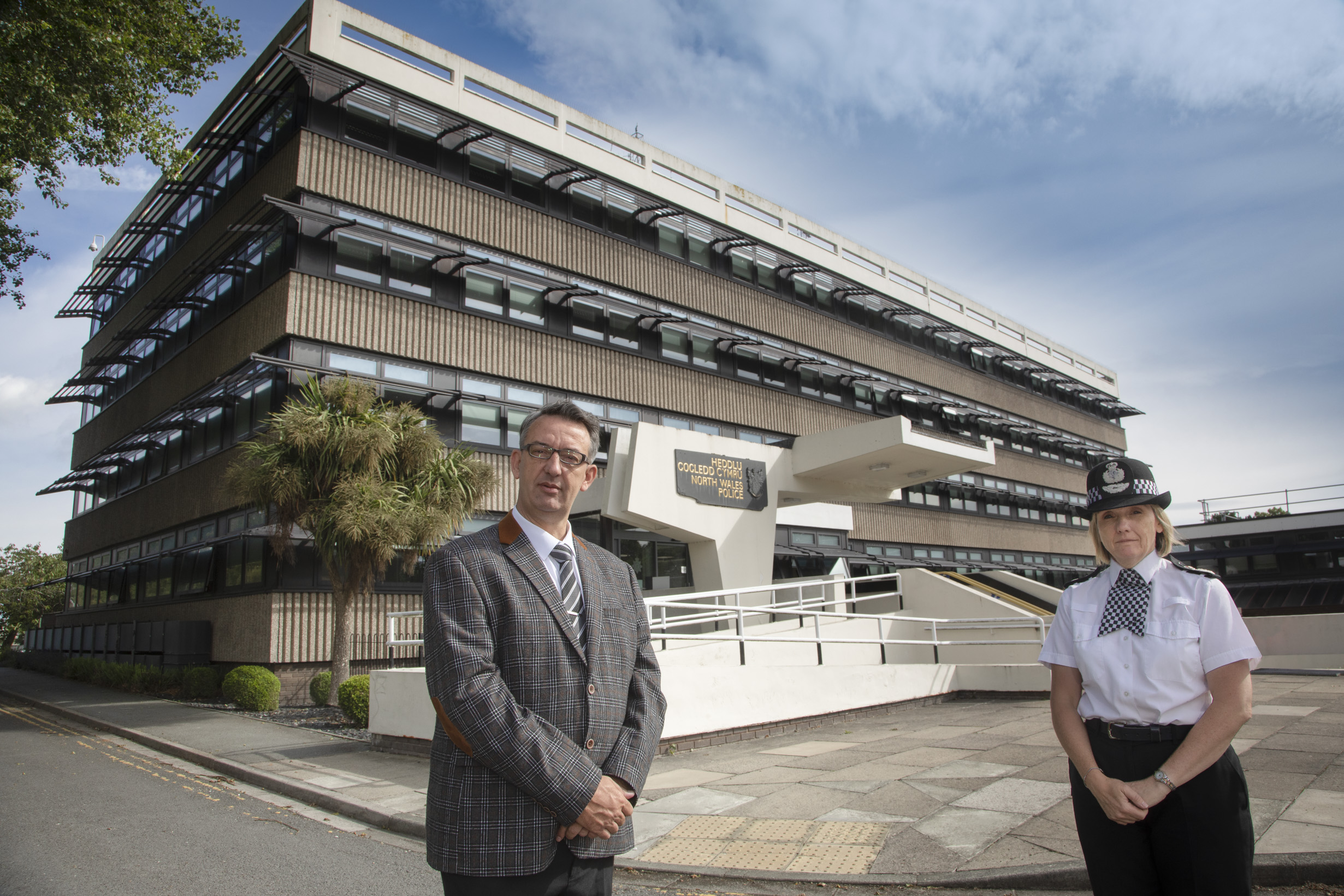Date

22/1/24: North Wales Police and Crime Commissioner (PCC) Andy Dunbobbin has today announced he will ask the Police and Crime Panel to approve an increase in the policing precept of 32p per week (or £16.56 annually) for a Band D property for the financial year 2024-25. In percentage terms, this means a 4.97% council tax increase on last year.
Mr Dunbobbin will make the proposal of the increase to the Police and Crime Panel at a meeting on January 29, 2024. If the Panel agrees to the increase, it will become effective in the next financial year from April 2024.
Over half of people who participated in a survey on the proposals were supportive of an increase in the policing precept of at least £17.50. So the recommended figure of £16.56 is significantly below the amount seen as acceptable by those who took part.
The survey took place with the people of North Wales over nearly six weeks from 27 November to 7 January, involving over 1,500 responses – a more than 50% increase on the number who took part last year, showing the depth of interest in the issue.
As part of North Wales Police’s determination to ensure the best value for money to residents, budget savings of £3.2m have also been identified in areas such as facilities and energy costs. In terms of the performance of the Force, as of 11 December 2023, recorded incidents of crime across North Wales had reduced by almost 13% compared to the previous 12 months, and the positive outcome rate had increased by just over 2%.
Andy Dunbobbin commented: “I am pleased that we have been able to put forward a proposal that will ensure an adequately funded police service for the coming year. Each one of us depends on having a well-financed and resourced Force that can fight crime and keep us all secure. I know that the residents of North Wales appreciate and understand this need and I welcome that the people who took part in our survey recognised this fact and supported an increase in the precept.
“However, at the same time, I know how difficult times are for many people and that large numbers are still struggling. This is why I am pleased to see the savings identified by the Force and why I will continue to fight on behalf of residents to deliver safer neighbourhoods, support victims and communities, and to see a fair and effective criminal justice system. The recent reduction in crime we have seen over the past year is welcome, and I hope that, given the tools, the officers and staff North Wales Police can continue to do their job effectively with the continued backing and support of residents.”
North Wales Police Chief Constable Amanda Blakeman said: “I recognise that these are challenging financial times and I am acutely aware of the impact any increase in outgoings can have. I would however like to reassure people that if the precept is accepted by the Police and Crime Panel, we will invest the money to benefit people and communities across the whole of North Wales.
“One of our top priorities is to improve our visibility and engagement with our communities. All our intended areas of investment support this priority and are in line with the Police and Crime Plan. Together we will work to make North Wales the safest place in the UK to live, work and visit.”
Around half the money for the police budget in North Wales comes from the UK Government and the rest comes from Council Tax. The amount of council tax depends on the precept levied by the Police and Crime Commissioner. While the policing precept is charged as part of Council Tax bills, the precept amount goes only towards paying for policing. The rest of the Council Tax goes towards paying for fire and rescue services, as well as for the local council to provide services such as refuse collection, street lighting, education and social care.
The final decision on the increase in the precept will now be made by the North Wales Police and Crime Panel at their meeting on January 29, 2024 in Bodlondeb, Conwy, which will be live streamed on Conwy County Borough Council’s website. The Police and Crime Panel is a body made up of ten councillors from across North Wales and three co-opted independent members and scrutinises the work of the Police and Crime Commissioner.